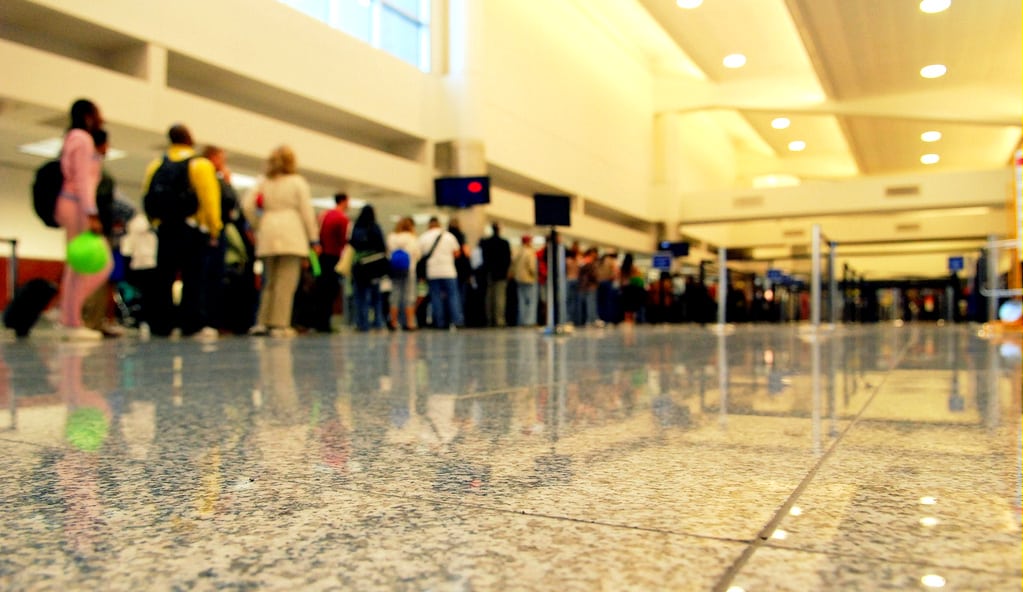Maybe We Should Think About Defunding the TSA After All

Skift Take
If you were just a casual observer of security theater you may think that TSA’s adoption of technology — especially to expedite passenger movement through the airports — is a great thing, a step in the right direction after a decade-plus of building up a wall around Fortress America.
But if you go beyond the surface, a different picture emerges: that the TSA is creating a higher Berlin Wall just to help jump over the wall it previously built, instead of trying to whittle the original one down to a more manageable level.
Instead of working on making simple things better — such as clear and readable signage, understandable and obvious lanes, better load balancing at multiple checkpoints — what travelers have to deal with are steps upon steps added to climb over the previous set of inefficiencies.
At all stages in its lifecycle, the TSA has chosen not to de-escalate or tear down any of the original web of procedures, but instead added additional layer of new procedures to help create side doors to the system, in effect building a parallel machinery.
Why does the TSA need to roll out a whole new parallel screening system with PreCheck and the qualification hoops passengers have to jump through to be part of it, when it could just as well lower the screening requirements built into the original system in the first place?
Imagine the costs involved in first coming up with PreCheck and then building, administering, marketing and maintaining it, when it could save a lot more by a rational de-escalation of the security requirement post 9-11 decade? And on top of that, PreCheck does not guarantee expedited screening, as its own rules say! The knots TSA has tied itself up in.
Why does the TSA need to order $6.8 million worth of liquid scanners for airports, when even the former TSA Administrator Kip Hawley says all that’s needed on liquids is updating software on current baggage scanners?
Why spend $900 million and 2,800 workers on a big behavior detection program when it was objectively shown that it was being misused? And don’t make matters worse by spending even more money to hire a consultant to try and find the system’s faults.
Instead of bringing in more tech to scan passports for some passengers — and spend millions to get these machines — why not ease up the questioning and requirements of entry into the country and speed up immigration lines and reduce hours and hours spent in lines at airports like JFK?
Beyond the knee jerk reactions like Republican lawmakers talking about abolition of TSA altogether, few grasp the nuances of the maze that has been built by TSA as both a solution to its political challenges and a justification for its own existence. There is no end solution, just more means created to foster other means.
So even if saner minds would suggest a paring down of TSA’s activities and streamlining, that would likely involve hiring another expensive consulting firm, and it will create additional systems to “simplify” the already existing systems.
Even when TSA tries to bring down some of the original restrictions like allowing small knives, the non-sensical public brouhaha that follows doesn’t give TSA any incentive to actually do anything smart about the bloat. It just becomes easier for it to build new moats around it, it seems.
Maybe defunding isn’t such a bad idea after all…





